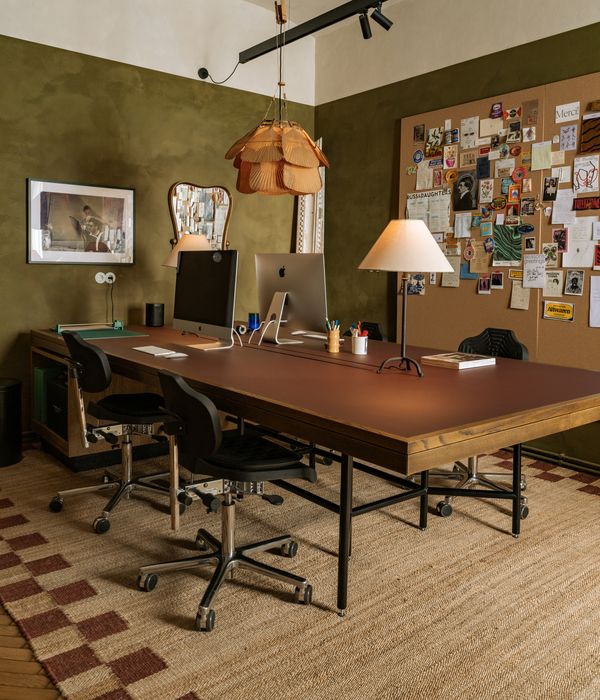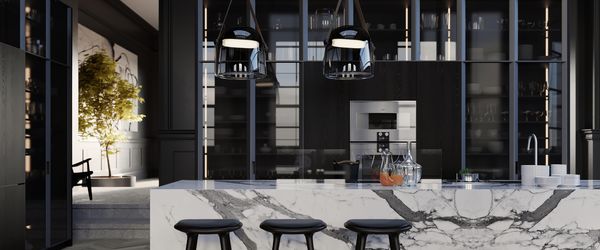
Photography: Ana S. Barros

What is the concept behind your project? What was your inspiration for Atelier Karasinski Archive? How long have you wanted to do this?
The Archive is something I’ve dreamt about for years—a personal reverie brought to life. It’s part Atelier, part salon, part showroom. The idea was to create a space that doesn’t follow convention but rather evokes a kind of curated timelessness—something between an artist’s studio and an old-world home museum. I’ve always been drawn to places that feel layered and lived-in, full of memorabilia and character. After designing spaces, homes and residences for so cherished clients, it felt only natural to create one for ourselves—where every detail, every hinge, every object, tells part of a story. A living, walk-through portfolio, if you will.

What was important for you to put across in this project, artistically?
That beauty and utility aren’t mutually exclusive. That a kitchen can be a poem. I wanted it to feel nostalgic yet serene—like a place where form quietly follows feeling. It’s about honouring the rituals of daily life and turning them into something a little more magical.
Please describe it in 3 words.
Well planned, spirited, whimsical.
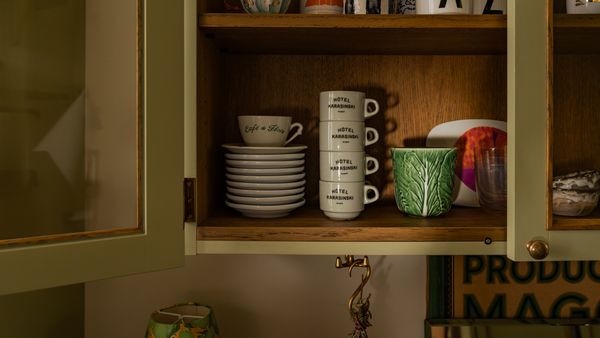
What is the concept behind your kitchen? How would you describe your kitchen style?
I think of it less as a kitchen, more of the heart of a home. A space for gathering, snacking, chatting, resting. There’s a nostalgic undercurrent—ornamented glass, vintage finds, the subtle wink of unlacquered brass—but it’s never heavy-handed. The overall feeling is light, composed, and quietly confident.

What was the biggest challenge when you designed your kitchen?
Finding that elusive balance between practicality and poetry. I didn’t just want a showroom kitchen—I wanted one that felt like it could hold a mess of lemons and still look beautiful. The trick was making sure everything worked as seamlessly as it looked. Luckily, Gaggenau appliances made that part rather effortless.

Was the materiality important for you when creating your kitchen concept?
Oh, absolutely. I’m obsessed with materials—their texture, their imperfections, the way they age. We used consciously sourced wood painted in a soft green paint, oak detailing, unlacquered brass that will patinate beautifully with time, and a vintage French marble table top as the sink’s backsplash—found years ago and waiting patiently for its moment to shine. The kitchen top is natural stone with just the right amount of grounding gravity. It’s all about the layers.

You × Gaggenau. Why did you choose to use Gaggenau appliances in your project?
Gaggenau has always had this quiet allure. Their designs don’t shout—they hum. We’ve included them in many client homes, but after meeting the team at Villa Necchi during Salone, the connection became personal. It felt like bringing a dream home. Their appliances are sculptural, refined, and seamlessly melt into the spaces we create.
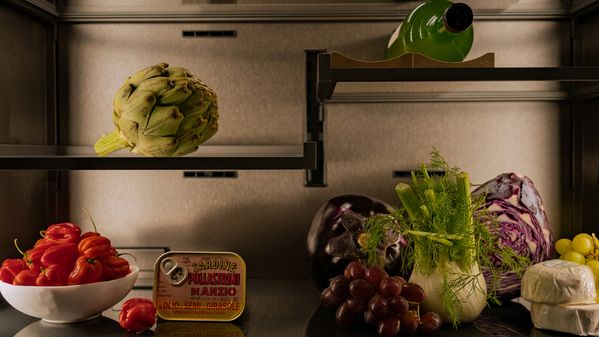
From your opinion, why are Gaggenau appliances special?
Because they understand restraint. There’s no unnecessary flourish. Just impeccable engineering wrapped in timeless design. They transform the everyday—opening a fridge, pouring a glass of something cold—into something almost ceremonial.
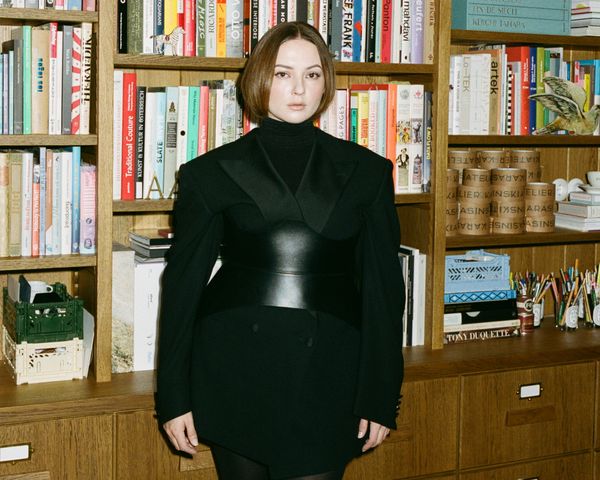
What was important for you to put across in this project from an appliance point of view?
That appliances can be elegant. That they can melt into a space without losing their presence. I wanted them to feel like part of the architecture—not something added on. Gaggenau gave us that: tools that are intuitive, sculptural, and quietly extraordinary.
